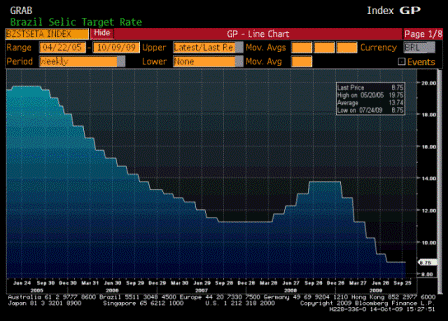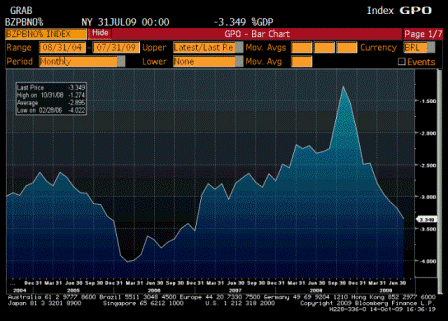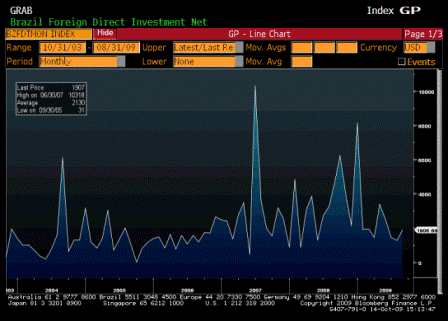[Skip to the end]
The economics profession is a disgrace. None of them seem to fathom monetary operations.
By Willem Buiter
This morality tale has important consequences for a government’s ability to conduct effective countercyclical policy. For a fiscal stimulus (current tax cut or public spending increase) to boost demand, it is necessary that the markets and the public at large believe that sooner or later, measures will be taken to reverse the tax cut or spending increase in present value terms.
Not true. This is some kind of ricardian equivalent twist that is inapplicable. For example, govt spending to hire someone is a direct increase in demand. And any dollar spent due to a tax cut increases demand by that dollar. (these are minimums)
If markets and the public at large no longer believe that the authorities will assure fiscal sustainability by raising future taxes or cutting future public expenditure by the necessary amounts, they will conclude that the government plans either to permanently monetise the increased amounts of public debt resulting from the fiscal stimulus, or that it will default on its debt obligations.
In fact that has already happened. As evidenced by the price of gold in an otherwise deflationary environment.
Permanent monetisation of the kind of government deficits anticipated for the next few years in the US and the UK would, sooner or later be highly inflationary.
‘Monetization’ alters interest rates, not inflation. Only to the extent that interest rates influence inflation does monetization influence inflation. And there’s not much evidence rates have much to do with inflation, and mounting evidence they have no influence on inflation. Not to mention my suspicions that lower rates are highly deflationary.
This would raise long-term nominal interest rates
Not directly- only to the extent market participants believe the fed will raise rates over the long term.
and probably give risk to inflation risk premia on public and private debt instruments as well.
Has already happened in many places.
Default would build default risk premia into sovereign interest rates, and act as a break on demand.
This has already happened and has not functioned as a break/brake? On demand or as a constraint on deficit spending.
Beacause I believe that neither the US nor the UK authorities have the political credibility to commit themselves to future tax increases and public spending cuts commensurate with the up-front tax cuts and spending increases they are contemplating,
Since taxes serve to moderate agg demand, this implies that when economies ‘overheat’ the authorities won’t tighten fiscal policy. However, the automatic fiscal stabilizers conveniently do that for them, as tax revenues rise during expansions faster than even govt can spend. And this fiscal consolidation does induce contraction and ends the expansion. It was the too low deficit in 2006 the slowed aggregate demand and began this latest down turn, with a little help from the drop in demand when the housing frauds were discovered.
I believe that neither the US nor the UK should engage in any significant discretionary cyclical fiscal stimulus, whether through higher public spending (consumption or investment) or through tax cuts or increased transfer payments.
There is no other way to add to aggregate demand, except by letting the auto stabilizers doing the exact same thing the ugly way- through a deteriorating economy- rather than proactively which prevents further decline.
Instead, the US and UK fiscal authorities should aggressively use their fiscal resources to support quantitative easing and credit easing by the Fed and by the Bank of England (through indemnities offered by the respective Treasuries to the Fed and the Bank of England to cover the credit risk on the private securities these central banks have purchased and are about to purchase).
Qe is just an asset shift that does nothing for aggregate demand, except possibly through the interest rate channel which, as above, is minimal if not counterproductive.
The £50 bn indemnity granted the Bank of England for its Asset Purchase Facility, by HM Treasury should be viewed as just the first installment on a much larger indemnity that could easily reacy £300 bn or £500 bn.
Purchasing financial assets doesn’t alter aggregate demand.
The rest of the scarce, credibility-constrained fiscal resources
Fiscal resources are not credibility constrained.
Japan today forecast deficits of over 200% of GDP with no signs of market constraints. In fact, their 10 year JGB’s trade at about 1.3%, and they were downgraded below Botswana.
of the US and the UK should be focused on recapitalising the banking system with a view to supporting new lending by these banks, rather than on underwriting existing assets or existing creditors.
Govt capitalization of banking is nothing more than regulatory forbearance. Bank capital is about how much private capital gets lost before govt takes losses. In the US, having the Treasury buy bank equity simply shifts the loss, once private equity is lost, from the FDIC to the Treasury, which funds the FDIC in the first place.
Other available fiscal resources should be focused on supporting, through guarantees and insurance-type arrangements, flows of new lending and borrowing. As regards recapitalisation and dealing with toxic assets I either favour temporary comprehensive nationalisation or the ‘good bank’ model. Existing private shareholders of the banks, and existing creditors and holders of unsecured debt (junior or senior) should be left to sink or swim without any further fiscal support, as soon as new lending, investment and borrowing has been concentrated in new, state-owned ‘good banks’.
The problem with banking is the borrowers can’t afford their payments. This needs to be fixed from the bottom up with payroll tax holiday or VAT holiday, not from the top down as he suggests.
It is true that, despite the increase in longer-term Treasury yields from the extreme lows of early December 2008, recent observations on government bond yields don’t indicate any major US Treasury debt aversion, either through an increase in nominal or real longer-term risk-free rates or through increases in default risk premia – although it is true that even US Treasury CDS rates have risen recently to levels that, although low by international standards, are historically unprecedented.
Yes, and 10 year rates in Japan are 1/3 of the US rates, and their debt is 3 times higher. He’s barking up the wrong tree.
In a world where all securities, private and public, are mistrusted, the US sovereign debt is, for the moment, mistrusted less than almost all other financial instruments (Bunds are a possible exception).
And Japan even less mistrusted with triple the deficits?
But as the recession deepens, and as discretionary fiscal measures in the US produce 12% to 14% of GDP general government financial deficits – figures associated historically not even with most emerging markets, but just with the basket cases among them, and with banana republics –
Only because those numbers include the tarp which is only a purchase of financial assets, and not a purchase of goods and services. Ordinarily tarp would have been done by the fed and the deficit lower, as it’s the Fed’s role to purchase financial assets. But this time it didn’t happen that way except for maiden lane and a few other misc. Purchases.
I expect that US sovereign bond yields will begin to reflect expeted inflation premia (if the markets believe that the Fed will be forced to inflate the sovereign’s way out of an unsustainable debt burden) or default risk premia.
That’s all priced in the TIPS and I don’t see much inflation fear there.
The US is helped by the absence of ‘original sin’ – its ability to borrow abroad in securities denominated in its own currency –
A govt doesn’t care which holders of its currency buys its securities. Deficit spending creates excess reserve balances at the Fed. The holders of those balances at the fed, whether domestic or foreign, have the option of doing nothing with them, or buying Treasury securities, which are nothing more than interest bearing accounts also at the Fed. The other option is spending those balances, which means the fed transfers them to someone else’s account, also at the Fed.
and the closely related status of the US dollar as the world’s leading reserve currency. But this elastic cannot be stretched indefinitely. While it is hard to be scientifically precise about this, I believe that the anticipated future US Federal deficits and the growing contingent exposure of the US sovereign to its financial system (and to a growing list of other more or less deserving domestic industries and other good causes) will cause the dollar in a couple of years to look more like an emerging market currency than like the US dollar of old. The UK is already closer to that position than the US, because of the minor-league legacy reserve currency status of sterling.
Meaning what? Just empty rhetoric so far.
Under conditions of high international capital mobility, non-monetised fiscal expansion strengthens the currency if the government has fiscal-financial credibility, that is, if the markets believe the expansion will in due cause be reversed and will not undermine the sustainability of the government’s fiscal-financial-monetary programme.
It’s a function of nonresident ‘savings desires’ of US financial assets.
If the deficits are monetised, the effect on the currency is ambiguous in the short run (it is more likely to weaken the currency if markets are forward-looking),
Because it’s a non event for the fed to buy financial assets, apart from small changes in term interest rates.
but negative in the medium and long term. If the increased deficits undermine the credibility of the sustainability of the fiscal programme, then the effect on the currency could be be negative immediately.
Ok, lots of things can turn traders against anything that’s traded. No news there.
The only element of a classical emerging market crisis that is missing from the US and UK experiences since August 2007 is the ’sudden stop’ – the cessation of capital inflows to both the private and public sectors.
With non convertible currency and floating fx there is no such possible constraint on federal spending and/or federal lending. The private sector, and other users of the currency, is a different story, and always vulnerable to a liquidity crisis.
Hence the ECB was bailed out by the fed with unlimited swap lines (functionally unsecured dollar loans from the Fed) when its member banks got caught short dollars last year.
That was their ‘sudden stop’ and it happened only because of foreign currency issues, not euro issues, and it happened to the private sector, not the public sector. Not to say current institutional arrangements don’t make the euro national govts subject to liquidity issues, but that’s another story.
There has been a partial sudden stop of financial flows, both domestic and external, to the banking sector and the rest of the private sector, but the external capital accounts are still functioning for the sovereigns and for the remaining creditworthy borrowers.
Yes, it’s about credit worthiness for borrowers who are users of a currency and not govts. In their currency of issue.
But that should not be taken for granted, even for the US with its extra protection layer from the status of the US dollar as the world’s leading reserve currency. A large fiscal stimulus from a government without fiscal credibility could be the trigger for a ’sudden stop’.
The fact that this article has any credibility speaks volumes.
[top]




